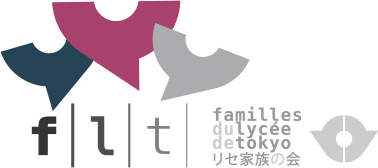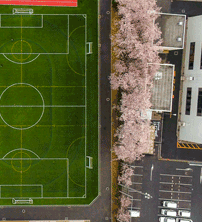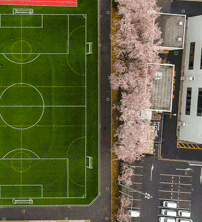Summary of the School Council held on February 16 2023
Link to the full report in French
https://www.lfitokyo.org/index.php/l-etablissement/les-instances
School calendar 2023-2024
The working version has yet to be validated by supervisory authorities (Education Nationale and AEFE). The following elements are therefore simply provided for reference purposes. Students would start school on Monday, September 4, 2023; All Saints holidays would be from October 21 to November 5; Christmas holidays from December 23 to January 8, 2024; winter vacations from February 24 to March 10; spring vacation from April 27 to May 12; and the last day of school would be on June 28.
Educational Structure 2023-2024
Next year, save for unanticipated arrivals/departures, the plan is to maintain 8 multi-age kindergarten classes; 5 classes per grade in elementary, except for CE1 which will have 6 classes; 5 classes from 6e to 4e; 4 classes from 3e to 1e; and 3 classes in Terminale. The additional position in elementary (future 6th CE1) is therefore maintained and a SIA teacher position will be created in secondary school to allow for the duplication of groups in future 6e and 4e.
Opening of SIJ 6ème and language courses
The opening of an international Japanese section (SIJ) in 6th grade was approved. The council discussed at length the proposals for the evolution of the language curriculum in primary and secondary school.
At the primary level, a simplification of the courses with 4h30 for all PARLE courses and 9h for international sections (SI) is being considered.
The significant reduction in the volume of hours for the PARLE and the SI, without specifying the assigned content, takes us further away from the bilingual sections with equal hours that we knew previously. Parent representatives also feel that without further clarification of the content and implementation of these reductions, there is no guarantee that this deterioration in language offerings would improve the organization of classes or the level of French of students.
The representatives of French teachers in primary schools also consider a return to the previous system with international sections and adjustments to the standard schedule that would not take up French teaching time (doing 3 hours of English and 1 hour of Japanese or 1 hour of English and 3 hours of Japanese, rather than 2 hours of each language, this option also remains possible).
In junior high school, the opening of a SIJ in 6th grade creates a de facto LV1 Japanese in high school which would also be accessible to students who have followed a reinforced course in Japanese in primary school. These students would also be taught English as part of a bilingual 6th grade (Japanese-English). In 5e, Japanese LV1 or LV2 would also become possible for families who wish to not add German or Spanish to their children’s schedule. The administration would like to draw the families’ attention to the fact that Japanese LV1 or LV2 is only available in a very limited number of schools in France (and is not available for distance learning through the CNED). Japanese would also be available as an option as a host country language (for non-Japanese speakers). Parent representatives noted that the proposal does not allow for Japanese language instruction to be offered to Japanese-speaking students at SIA as it stands. The secondary school teachers regretted, as did the parents, that they did not have the number of hours for each course/option and more details on the content. A meeting with the Japanese teachers who know the students’ profiles and are working on the content is planned in March. These new courses will eventually make it possible to do away with the current LV1bis and JLE/JLM groups which do not align with the French school system.
The parents’ representatives reiterated that they would like to be more involved in the process pertaining to the evolution of the language curriculum at the primary level and changes at the secondary level, in order to help define the objectives of the different pathways. Indeed, the goals of families whose children undertake a Japanese or English pathway are different and it is not desirable to try to model one on the other. The parent representatives asked to be included in future discussions.
At the time of the vote, teachers and parents finally agreed to abstain, as the proposal needed to be clarified and reworked.
For your information, a working group on the subject of language reform in secondary school has been formed within the association, please feel free to send us your questions and suggestions to gt-rls@familles-lycee-tokyo.com.
Date oral DNB 3ème
The orals of the diplôme national du brevet will take place from May 31 to June 2, 2023.
Trips
The calendar and budget of the different school trips planned until June is validated.
Miscellaneous questions from the parents’ representatives
The miscellaneous questions could not be discussed due to lack of time, they were answered in writing in the school minutes but could not be discussed.
- Urgent communications are systematically made in French and Japanese for the primary school, in French in real time on Twitter for the bus delays.
- The perpetrators of theft have all been sanctioned (not punished), individually and proportionately. The seriousness of the consequences of such acts in Japan has been communicated to the relevant families. Written apologies were also made to the victims.
- Inclusive school: the school has a coordinator who acts as a link between families and teachers for the secondary school; for the primary school, Mr. Teissonnière handles this task. A contact teacher for inclusive school matters can indeed be a highly relevant and interesting driver on this topic, but such a recruitment has a cost that must be evaluated, in a context of necessary financial arbitration. An “inclusive school” committee can be studied: consideration should be given to its composition, its missions, and its relevance in the local context.












